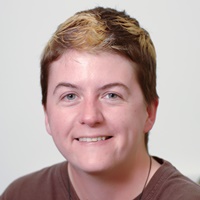Cameron speech "represents a U-turn in government policy on 'radicalisation'" - Dr Charlotte Heath-Kelly
 The Government's five year plan to address the 'failures of integration responsible for British citizens joining ISIS' represents a U-turn in government policy on 'radicalisation'.
The Government's five year plan to address the 'failures of integration responsible for British citizens joining ISIS' represents a U-turn in government policy on 'radicalisation'.
When the Conservative Party took office in 2011 alongside the Liberal Democrats, they announced a full review of UK PREVENT strategy (counter-radicalisation policy), damning previous Labour efforts to prevent 'radicalisation' for being inappropriately focused on integration. It is ironic then that today's major policy announcement re-introduces integration as the issue underpinning 'radicalisation'. The government now believes the solution lies in integrating supposedly-dangerous-Muslim youth through incentivising schools and addressing the allocation of social housing. This looks very similar to the PREVENT strategy under Labour before 2011 which prioritised integration and community cohesion, and which the Tory-LibDem coalition criticsed as a waste of money.
The government appears confused as to whether integration is, or is not, linked to radical beliefs and behaviours. While the current PREVENT strategy makes great efforts to separate the issue of integration from radicalisation, today's five year plan on ISIS takes the opposite direction. This policy confusion is unsurprising given that transitions towards political violence (joining ISIS) have been proven to be extremely complex by academics, and impossible to simplistically model as the result of one, or several factors.
As multiple academics have shown in the recent book 'Counter-Radicalisation: Critical Perspectives', the government's idea of 'radicalisation' is a dangerous simplistic reduction of a complex problem into easy political soundbites. Unsure how to tackle a difficult problem? Blame immigrants. Even if you came to power in 2011 promising that you would take a more sophisticated position on the issue of 'radicalisation'.
Contact:
Tom Frew - International Press Officer, University of Warwick;
a.t.frew@warwick.ac.uk
+44 (0) 2476575910
